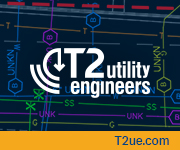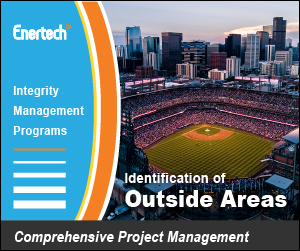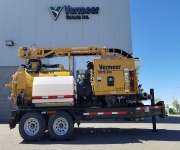 |
||||||||||||||||||
| Archive | Subscribe | Send to a Friend | DigSafeCanada.ca | Dig Safe | ||||||||||||||||||
Top Story
The CCGA Damage Prevention Symposium is heading back to Whistler, B.C.! It’s been a long time and we are so looking forward to seeing everyone again! More details to be released soon! National News
Le sol québécois étant pourvu de nombreux réseaux non identifiés (RNI) et de structures abandonnées, ces éléments non cartographiés n'apparaissent pas sur les rapports de localisation et affectent ainsi les chantiers et les travailleurs lors de leurs découvertes durant l'excavation. Le sol québécois étant pourvu de nombreux réseaux non identifiés (RNI) et de structures abandonnées, ces éléments non cartographiés n'apparaissent pas sur les rapports de localisation et affectent ainsi les chantiers et les travailleurs lors de leurs découvertes durant l'excavation. Afin de trouver des solutions à cette problématique, Info-Excavation a mis en place en 2020 un comité multisectoriel pour analyser des cas vécus, les impacts associés et discuter de solutions possibles. Un nouveau processus a été élaboré permettant ainsi de rapporter ces réseaux non-identifiés (RNI) auprès d’Info-Excavation et par conséquent, de bâtir une nouvelle cartographie de ces réseaux non-identifiés (RNI) au Québec. Ce nouveau processus sera effectif dès mars 2022. Un travail collaboratif est nécessaire afin de recevoir des informations plus complètes sur ce qui se trouve dans le sol. - Les propriétaires d’infrastructures souterraines doivent nous transmettre leurs cartographies d'infrastructures abandonnées. - Les donneurs d'ouvrage doivent exiger de leurs entrepreneurs, dans leurs appels d'offres, de faire parvenir les informations à Info-Excavation lors de découvertes de RNI ou abandonnés. - Les entrepreneurs devront faire une demande de type RNI chez Info-Excavation dès leurs découvertes. Nous avons créé un aide-mémoire simple et efficace afin de guider les excavateurs dans ce tout nouveau processus. L'objectif est de permettre aux entrepreneurs / excavateurs d’informer Info-Excavation et ses propriétaires de réseaux membres de la découverte d’infrastructures souterraines qui n’avait pas été préalablement identifiées et localisées. Ensemble, améliorons la prévention des dommages et la sécurité des travailleurs Pour plus d'information référez-vous à la section Prévention / RNI de notre site Web. Many abandoned underground infrastructures as well as unidentified conduits (UC) are buried in Quebec. These infrastructures are missing in the transmitted location reports and it impacts workers and the construction sites. To address the issue of unidentified conduits, a multisectoral committee was created by Info-Excavation to analyze cases and impacts but also to find solutions. A process was then established to inform Info-Excavation about these unidentified conduits (UC). The goal is to create a new mapping of those unidentified conduits (UC) in Quebec. The system will be operational as of March 2022. A collaboration is essential to get complete information on what exactly is in the ground : - Owners of Underground Infrastructures must send us the mapping of their abandoned infrastructures without delay - Clients must require from their contractors/excavators to inform us whenever an abandoned infrastructure or UC is found on the construction site. - Contractors must notify a UC request on Info-Excavation’s portal whenever they find an underground infrastructure not included in the initial locate report. We created an easy and efficient aide-mémoire to guide them. Information related to this mapping will be transmitted to future requesters when their excavation work is done near an unidentified or abandoned conduit. Together, damage prevention and the safety of workers can be improved! For more information, visit our website.
Regional Partners
Source: Canada Energy Regulator The CER shared the OPR Review Discussion Paper with Indigenous peoples, regulated companies and other parties and it contains questions that will help guide the conversation over the course of the comment period. To follow progress or to comment, please click on the link. The Canada Energy Regulator (CER) launched the OPR Review in December 2021 with an initial notification and a request to let us know how you would like to be engaged. We are now sharing this Discussion Paper (available online at the OPR Review webpage), with questions for your input by April 15 2022. We want to hear from you; your participation will be an important contribution for the review of this regulation. The CER’s objective for this review is to deliver a regulation that supports the highest level of safety, security and environmental protection, advances Reconciliation with Indigenous peoples, addresses transparency and inclusive participation, provides for predictable and timely oversight and encourages innovation. The OPR Review will build on learnings from years of implementing the OPR, and feedback from Indigenous peoples, regulated companies, landowners and other stakeholders. Virtual information sessions will be offered to provide you with an opportunity to have additional context and to be able to ask questions to help inform your input. The following virtual session are being offered. Please let us know if you would like to participate by sending us an email at opr-rpt@cer-rec.gc.ca, with the subject line “Virtual Session” and the date that works for you. February 9, 2022: 11:00 a.m. to 12:30 p.m. (MST) (French); 1:30 p.m. to 3:00 p.m. (MST) (English) La REC a partagé le document Révision du Règlement de la Régie canadienne de l’énergie sur les pipelines terrestres – Document de travail avec les peuples autochtones, les entreprises réglementées et d’autres parties. Il contient des questions qui aideront à guider la conversation au cours de la période de commentaires. Pour suivre la progression ou commenter, cliquez sur le lien. La Régie de l’énergie du Canada (REC) a lancé le document de travail Révision du Règlement de la Régie canadienne de l’énergie sur les pipelines terrestres en décembre 2021 avec un premier avis ainsi qu’une demande afin de connaître comment vous aimeriez continuer à participer. Nous partageons maintenant ce document de travail (disponible en ligne sur la page Web du REC) ainsi que des questions s’y rattachant. Vos réponses doivent être soumises d’ici le 15 avril 2022. Nous voulons connaître votre avis; votre participation sera une contribution importante à la révision de ce règlement. L’objectif de cette révision est d’établir un règlement qui appuie le niveau le plus élevé de sécurité, de sûreté et de protection de l’environnement, fait progresser la Réconciliation avec les peuples autochtones, traite des enjeux de transparence et de participation inclusive, assure une surveillance prévisible et en temps opportun et encourage l’innovation. La révision du Règlement s’appuiera sur les leçons apprises depuis son entrée en vigueur et sur les commentaires des peuples autochtones, des sociétés réglementées, des propriétaires fonciers et des autres parties prenantes. Des séances d’information virtuelles vous sont offertes afin de vous donner un contexte supplémentaire et l’opportunité de poser des questions afin de vous aider à formuler vos commentaires. La session virtuelle suivante est proposée. Si vous souhaitez participer au processus, veuillez envoyer un courriel à opr-rpt@cer-rec.gc.ca, en inscrivant « session virtuelle » dans la ligne d’objet et en précisant la date qui vous convient. 9 février 2022 : 11 h 00 à 12 h 30 (HNR) (français) ; 13 h 30 à 15 h 00 (HNR) (anglais)
|
||||||||||||||||||
|
||||||||||||||||||
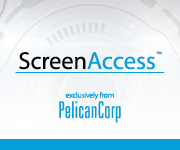
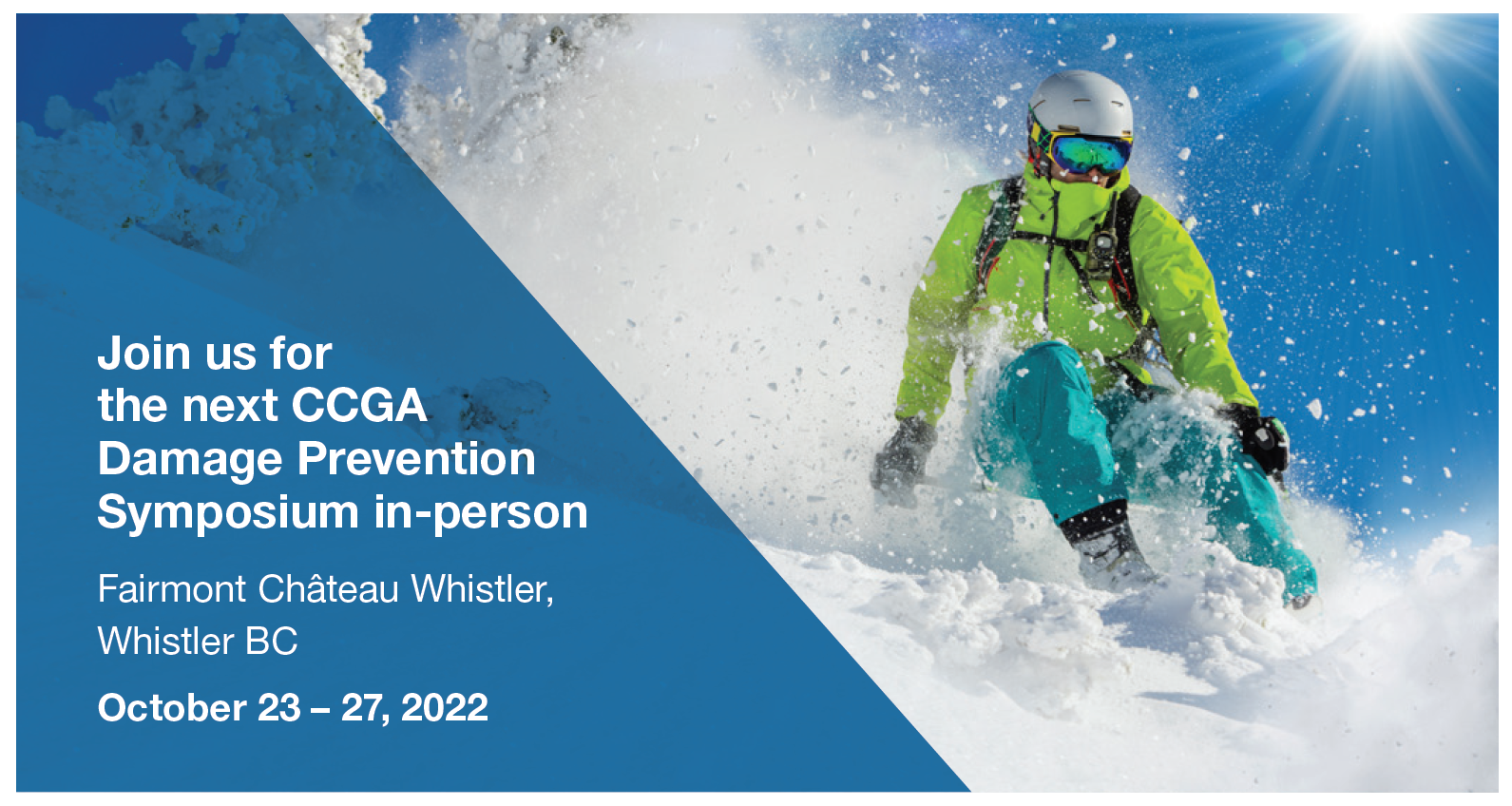
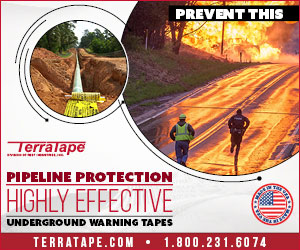
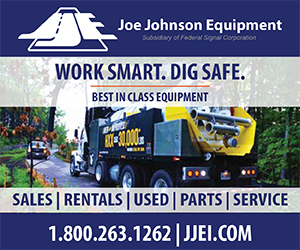
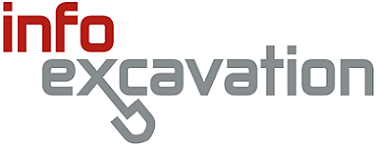 Source: Info-Excavation
Source: Info-Excavation